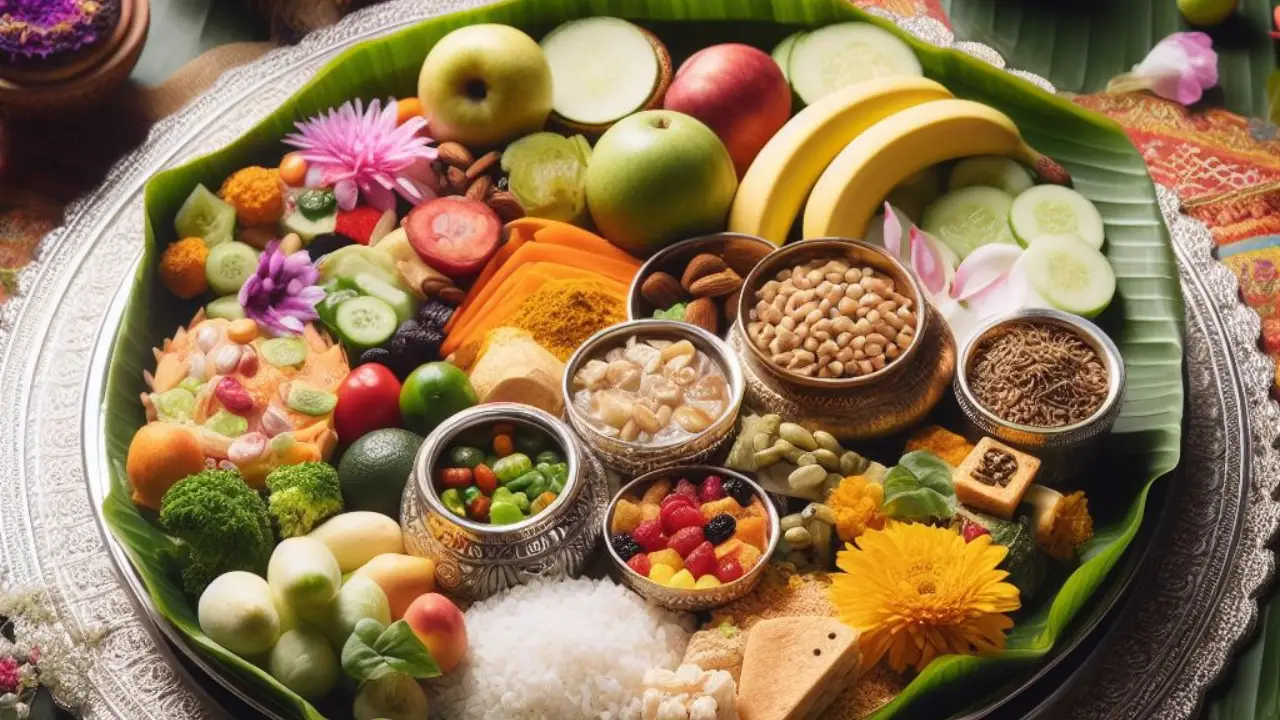Food in Hinduism plays a central role, weaving through the fabric of rituals, spirituality, and everyday life. The intricate dance between vegetarianism and Prasad, sacred offerings, reveals profound insights into the Hindu way of life.
Ahimsa and the Vegetarian Ethos
At the heart of Hindu dietary practices is the principle of Ahimsa, or non-violence. Many Hindus adopt a vegetarian lifestyle as a reflection of this profound commitment to avoid causing harm to any living being. By abstaining from the consumption of meat, followers of Hinduism seek to cultivate compassion and live in harmony with the world around them.
Vegetarianism in Hinduism extends beyond a dietary choice; it is a spiritual journey, a conscious decision to tread lightly on the Earth. The belief that all living entities share a divine essence underscores the reverence for life, compelling Hindus to make ethical choices in their food habits.
Culinary Rituals: Preparing Food as a Spiritual Act
In Hindu households, the act of cooking transcends the mundane. It transforms into a sacred ritual, a communion with the divine. As families come together to prepare meals, they infuse the ingredients with love and devotion. The kitchen becomes a temple, and each dish an offering to the gods.
The preparation of food in Hinduism is not just a means of sustenance; it’s a form of worship. The meticulous adherence to purity, the chanting of mantras while cooking, and the use of specific ingredients are all integral parts of this culinary devotion.
Prasad: Divine Grace in Edible Form
In the Hindu tradition, the concept of Prasad goes beyond mere food; it embodies the grace of the divine. Prasad is any edible substance that has been offered to a deity during worship and then distributed to devotees. It serves as a tangible connection between the worshiper and the divine, carrying the blessings of the gods to those who partake in it.
Offering Prasad is a gesture of gratitude and humility. Devotees receive it with reverence, understanding that it is not just food but a divine blessing. The act of sharing Prasad fosters a sense of community and unity, as everyone becomes equal recipients of the divine grace.
Festivals and Feasts: A Tapestry of Culinary Celebrations
Hindu festivals are a riot of colors, sounds, and flavors. The culinary aspect of these celebrations is a testament to the rich cultural tapestry of the religion. During festivals, an array of vegetarian dishes takes center stage, showcasing the diversity and depth of Hindu cuisine.
From the sweetness of modaks during Ganesh Chaturthi to the savory delights of pakoras during Diwali, each festival brings forth a unique culinary tradition. Food becomes a medium to express joy, gratitude, and devotion during these festive occasions.
Mindful Eating: The Yogic Approach to Sustenance
In Hinduism, the practice of mindful eating is deeply ingrained in the concept of Yoga. Food is seen as a source of energy not just for the body but also for the mind and soul. The ancient texts emphasize the importance of moderation and awareness in consumption, aligning with the principles of self-discipline and self-control.
By being mindful of what they consume, Hindus aim to maintain a balance between the physical and spiritual dimensions of their being. The act of eating transforms into a conscious communion with the divine, fostering a sense of gratitude for the sustenance provided by the Earth.
The Global Impact: Spreading the Message of Vegetarianism
While Hinduism originated in the Indian subcontinent, its influence has spread globally. The philosophy of vegetarianism as a path to spiritual enlightenment has resonated with people worldwide. Many individuals, irrespective of their religious beliefs, have embraced the idea of conscious, plant-based living inspired by Hindu principles.
Conclusion: Savoring the Spiritual Essence of Food in Hinduism
In the realm of Hinduism, food is more than nourishment for the body; it is a pathway to spiritual awakening. The vegetarian ethos and the practice of offering Prasad serve as bridges between the material and the divine, inviting individuals to partake in a sacred communion with the cosmos.
As we delve into the intricate relationship between food in Hinduism, let us reflect on our own approach to sustenance. Can we adopt a more mindful and grateful attitude towards the nourishment we receive? The wisdom embedded in Hindu culinary traditions transcends cultural boundaries, offering a universal lesson in the art of mindful living.
How does the spiritual aspect of food resonate with you? Have you ever experienced the profound connection between what you eat and your spiritual well-being? Share your thoughts and experiences in the comments below. Let’s engage in a vibrant conversation about the spiritual essence of food in our lives.





